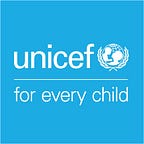20 February 2018
Every child deserves to survive
An estimated 7,000 newborn babies die every day around the world.
Every year, 2.6 million newborns around the world do not survive their first month of life. One million of them take their first and last breaths the day they are born. Newborn deaths now account for a greater, and growing, share of all deaths among children under age 5. The vast majority are preventable. No child should lose her or his chance to survive and thrive, especially so early in life.
Hawa Mustafa holds her 6-month-old daughter, Muna Ibrahim, at the Homosha health centre, where four of her children were born, in Ethiopia’s remote Benishangul-Gumuz region.
“I’m grateful that they’re alive,” she said.
Her first child, born at home, died almost immediately afterwards.
The number of women delivering in health facilities has more than doubled in the region, due in part to a network of committed women teaching mothers about health services and how to care for their newborns. A support group meets at a UNICEF-supported health post in the Benishangul-Gumuz region.
No child should lose their chance to survive and thrive so early in life — especially when the solutions needed to keep them alive and healthy exist. A doctor holds an antenatal session for pregnant women and their partners, at the Rubare referral health centre in the Democratic Republic of the Congo.
A trained pair of hands can keep a newborn alive. Doctors, nurses and midwives provide a wide range of services during pregnancy, birth and beyond. Vinita Kalra, a nurse-midwife, performs an ante-natal check-up during a home visit in Momodhan Village in Rajasthan State, India.
Jamila Seid smiles as she looks at the ultrasound scan of her healthy foetus. She went to a UNICEF-supported health centre in Homosha when she no longer felt her unborn baby kicking. In Benishangul-Gumuz region, health professionals are providing lifesaving services for mothers and babies.
Malawi, a low-income country, has dramatically improved access to health services for mothers and newborns and improved newborn survival. Midwife Dorothy Laina Palani washes, checks and weighs newborn Gertrude Shaibu in the maternity ward at Zomba Central Hospital, in the regional town of Zomba.
Kyrgyzstan has achieved amazing results in eradicating newborn mortality as well. Proven practices like Kangaroo Care (skin-to-skin contact between mother and baby) help improve a baby’s survival chances. Jiydegul’s newborn son, Nurdan, is placed at her breast, in Daroot Korgon Hospital.
A baby born prematurely sleeps in Bishkek Maternity Hospital in Kyrgyzstan — where UNICEF, working with the Government, supports training for hundreds of health care professionals, implemented lifesaving medical protocols and brought crucial equipment to help premature babies survive.
UNICEF is supporting the Government of India to reduce neonatal mortality and to save the lives of newborns and mothers in Maharashtra State. A medical professional monitors newborn babies in the Special Newborn Care Unit (SNCU) at the Civil Hospital in Beed.
Dhanasri Rahul Kshirsagar, using the Kangaroo Care method, holds her 1-day-old son close against her chest, in the SNCU at the Beed Civil Hospital. The skin-to-skin contact helps to improve a baby’s breathing and heart rate.
Postnatal care and treatment, including immunizations, are among the services that also help keep newborns alive. One-day-old Musa Mohammed receives oral polio vaccine at the UNICEF-supported Homosha district health centre in Benishangul-Gumuz region.
“We always need to be ready, regardless of the circumstances” says Dr. Baktygul Pakirova (right), who is being assisted by a midwife as she gives a healthy newborn baby his first check-up. “We are responsible for two lives — the life of the mother and of the child.”
Successes provide lessons for other countries committed to keeping every child alive. Just a few small steps from everyone can help ensure the first small steps of each of these young lives. An infant sleeps in the neonatal intensive care unit at Assosa General Hospital in Benishangul-Gumuz.
Learn more about Every Child ALIVE.
